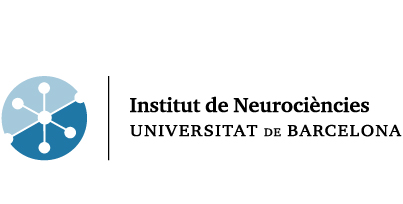JOSEP M. CANALS COLL
Position: Associate Professor
jmcanals (at) ub.edu
Research team
Unai Perpiña Martín
Assistant professor
uperpinam (at) ub.edu
Mireia Galofré
Responsible for Research by project department
mireiagalofre (at) ub.edu
Phil Sanders
Investigator; In vitro analysis specialist
phil.sanders (at) ub.edu
Georgina Bombau
Lab Technician
gbombau (at) ub.edu
Andrea Comella Bolla
Early stage researcher
acomella (at) ub.edu
Cristina Salado Manzano
Early stage researcher
csaladomanzano (at) ub.edu
David Vanneste
Project Manager
davidvanneste@ub.edu
Paola Lucero Calabuig
Sales promoter
paolalucero (at) ub.edu
Giovanni
Investigator; Bioinformatics specialist
Contact details
Dr. Josep M. Canals Coll
Department of Biomedicine
Faculty of Medicine, Casanova 143
08036 Barcelona (Spain)
934035288
jmcanals (at) ub.edu
Research Interest
Stem Cells and Regenerative Medicine group focuses its research efforts on neurodegenerative diseases, mainly focus on Huntington’s and Parkinson’s disease.
The main objective of our group is the characterization of extrinsic and / or intrinsic factors that participate in the differentiation of stem cells towards estriatal neurons that can ultimately replace damaged neurons. As a source of stem cells we are studying the potential of embryonic stem cells from the internal blastocyst mass of preimplantational embryos as well as neuronal stem cells obtained from striatal primitives of the early stages of gestation.
Our group has characterized the effect of different extrinsic factors as well as various transcription factors such as Nolz1, ikaros1 and Helios. Recently, we have described the role of these transcription factors during striatal neurogenesis and its mechanisms of action. We have also described the interaction of these transcription factors with other telencephalic factors.
On the other hand, for many years we are also interested in other therapeutic strategies for Huntington’s disease such as neuroprotection. We are currently studying the potential of mesenchymal stem cells for ex vivo gene therapy approaches in order to protect striatal neurons.
We think that all these therapeutic strategies may contribute in the future to find a cure for Huntington’s disease.
Stem Cells and Regenerative Medicine group belongs to Creatio, Production and validation center for advanced therapies.( http://www.ub.edu/creatio)
Current Research Line
- We uncover waves of transcription activities (RA, Nolz1, Ikaros1, Helios) that control the differentiation of cells into specific neurons.
- We are also interested in the therapeutic possibilities offered by neuroprotection and investigates the potential of mesenchymal cells to be used in ex vivo gene therapy to protect the striatal neurons.
- We perform recapitulation of brain circuitry by seeding stem cells differentiated into various specific types of neurons onto a microchip that can make functional connections.
- We are involved in studies about the impact of cellular matrix (the niche) for the organization of neurons into functional network.
- We use the discoveries generated from in vivo studies to establish valid and robust protocols to differentiate stem cells into specific neurons.
- We work to generate chimeric models combining the best that in vivo and in vitro can offer.
Technologies/Methods
The different methods used by stem cells and regenerative medicine scientists are: stem cell culture and differentiation, co-culture of differentiated stem cells on multi-chamber/chip system, in vivo and in vitro optogenetics and optopharmacology, mouse behavioural analysis, in vivo neuron grafting, laser capture, high-throughput gene expression analysis, immunostainings and in situ hybridization, matrix microprinting, confocal and electronic microscopy, high-throughput content analysis, calcium imaging, branching and dendritic network analysis.
Highlighted Publications
HD iPSC Consortium ; Developmental alterations in Huntington’s disease neural cells and pharmacological rescue in cells and mice ; Nat Neurosci. 2017 May;20(5):648-660
Martín-Ibáñez R, Pardo M, Giralt A, Miguez A, Guardia I, Marion-Poll L, Herranz C, Esgleas M, Garcia-Díaz Barriga G, Edel MJ, Vicario-Abejón C, Alberch J, Girault JA, Chan S, Kastner P, Canals JM ; Helios expression coordinates the development of a subset of striatopallidal medium spiny neurons ; Development. 2017 Apr 15;144(8):1566-1577
Straccia M, Carrere J, Rosser AE, Canals JM ; Human t-DARPP is induced during striatal development ; Neuroscience. 2016 Oct 1;333:320-30
Martín-Ibáñez R, Guardia I, Pardo M, Herranz C, Zietlow R, Vinh NN, Rosser A, Canals JM ; Insights in spatio-temporal characterization of human fetal neural stem cells ; Exp Neurol. 2017 May;291:20-35
Straccia M, Garcia-Diaz Barriga G, Sanders P, Bombau G, Carrere J, Mairal PB, Vinh NN, Yung S, Kelly CM, Svendsen CN, Kemp PJ, Arjomand J, Schoenfeld RC, Alberch J, Allen ND, Rosser AE, Canals JM ; Quantitative high-throughput gene expression profiling of human striatal development to screen stem cell-derived medium spiny neurons ; Mol Ther Methods Clin Dev. 2015 Sep 16;2:15030



